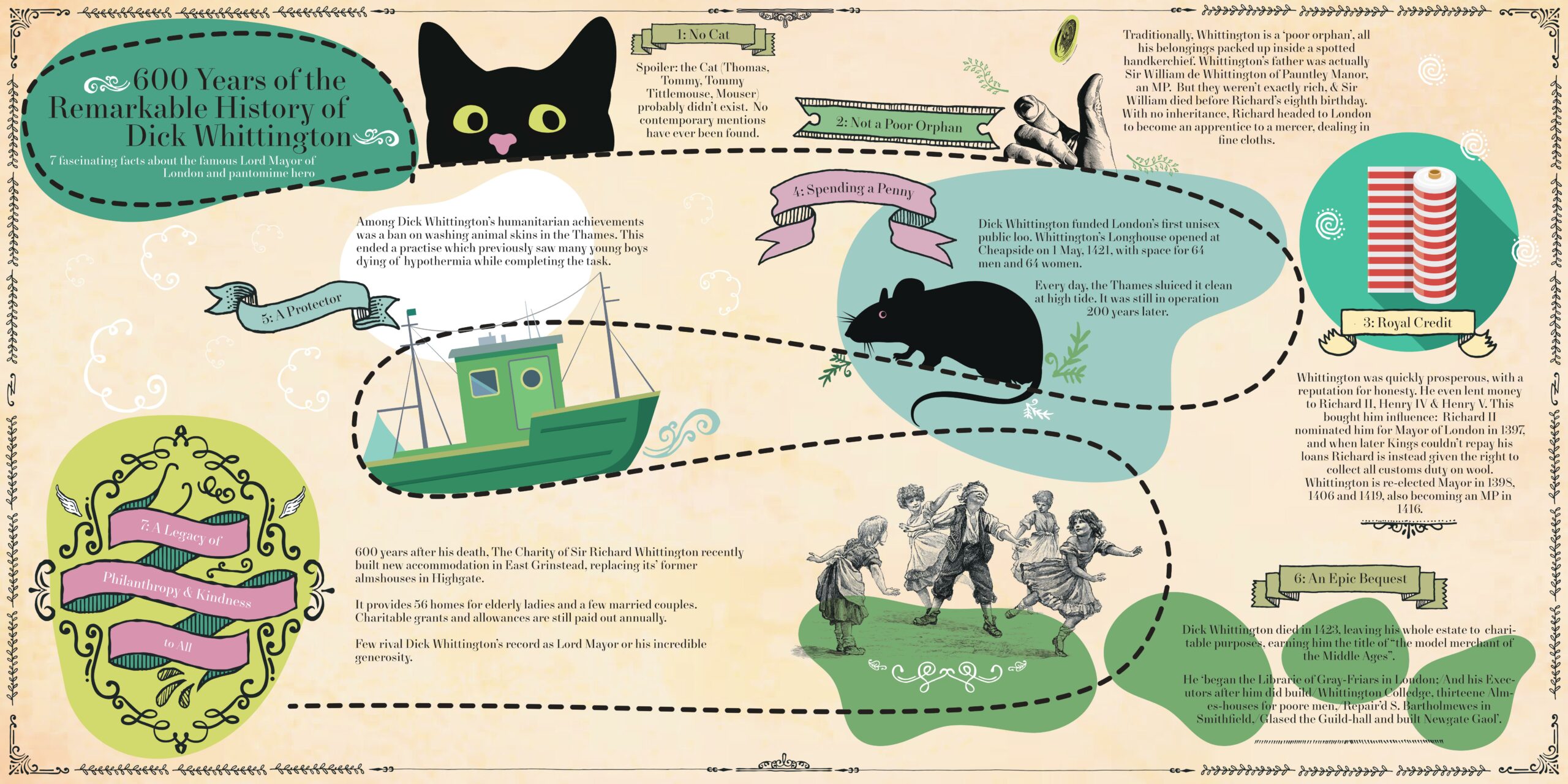As a successful businessman, Sir Richard Whittington supplied fine fabrics to the Court and loans to Kings. But Dick Whittington was also an Alderman, Sheriff, MP, Mayor of Calais, three times Master of the Mercers’ Company and four times Lord Mayor. On his death he left his entire fortune to charitable causes, and 600 years later his trust is still helping people.
7 fascinating facts about the famous Lord Mayor of London and pantomime hero:
1. No Cat
Spoiler: the Cat (Thomas, Tommy, Tommy Tittlemouse, Mouser) probably didn’t exist. No contemporary mentions have ever been found.
2. Not a Poor Orphan
Traditionally, Whittington is a ‘poor orphan’, all his belongings packed up inside a spotted handkerchief. Whittington’s father was actually Sir William de Whittington of Pauntley Manor, an MP. But they weren’t exactly rich, and Sir William died before Richard’s eighth birthday. With no inheritance, Richard headed to London to become an apprentice to a mercer, dealing in fine cloths.
3. Royal Credit
Whittington was quickly prosperous, with a reputation for honesty. He event lent money to Richard II, Henry IV and Henry V. This bought him influence: Richard II nominated him for Mayor of London in 1397, and when later Kings couldn’t repay his loans, Richard was instead given the right to collect all customs duty on wool. Whittington was re-elected Mayor in 1398, 1406, and 1419, also becoming an MP in 1416.

4. Spending a Penny
Dick Whittington funded London’s first unisex public loo. Whittington’s Longhouse opened at Cheapside on 1 May 1421, with space for 64 men and 64 women. Everyday, the Thames sluiced it clean at high tide. It was still in operation 200 years later.
5. A Protector
Among Dick Whittington’s humanitarian achievements was a ban on washing animal skins in the Thames. This ended a practice which previously saw many young boys dying of hypothermia while completing the task.
6. An Epic Bequest
Dick Whittington died in 1423, leaving his whole estate to charitable purposes, earning him the title of “the model merchant of the Middle Ages”.
He “began the Librarie of Gray-Friars in London:/ And his Executors after him did build/Whittington College, thirteene Almes-houses for poore men,/ Repair’d S. Bartholmewes in Smithfield,/ Glased the Guild-hall and built Newgate Gaol”.
7. A Legacy of Philanthropy and Kindess to All
600 years after his death, The Charity of Sir Richard Whittington recently built new accommodation in East Grinstead, replacing its former almshouses in Highgate.
It provides 56 homes for elderly ladies and a few married couples. Charitable grants and allowances are still paid out annually.
Few rival Dick Whittington’s record as Lord Mayor or his incredible generosity.